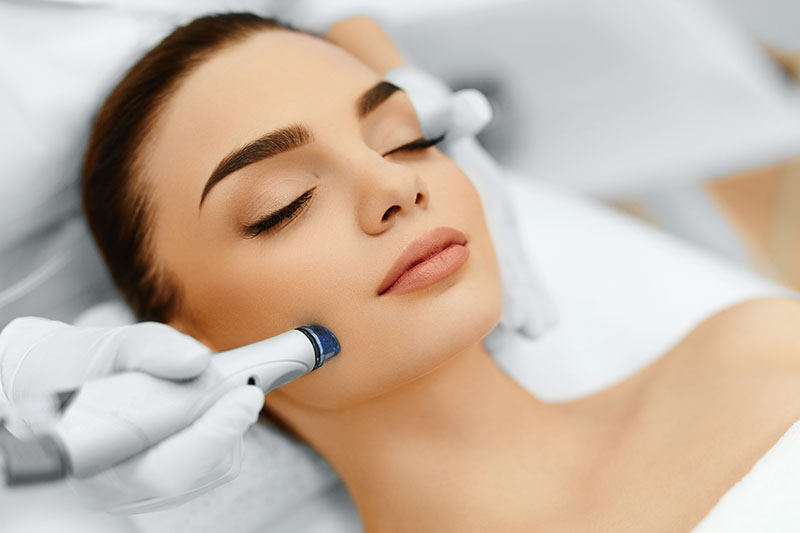
What is Microdermabrasion?
Microdermabrasion is a minimally invasive exfoliation treatment that helps improve the appearance of sun damage, fine lines, scars, and hyperpigmentation. In addition to its cosmetic benefits, this treatment also promotes better blood circulation and lymphatic drainage. One of the key advantages of microdermabrasion is that results are visible immediately, and there is no downtime—you can return to your normal routine right after the procedure.
Book OnlineThis treatment is performed in-office and does not require anesthesia. It can also be safely combined with other skin-enhancing procedures such as chemical peels or laser therapy.
Microdermabrasion vs. Dermabrasion
Unlike dermabrasion, which is a more invasive surgical procedure that removes several layers of skin to treat severe conditions, microdermabrasion is much gentler. Dermabrasion is typically reserved for deeper scarring and more serious skin concerns, while microdermabrasion is ideal for general resurfacing and rejuvenation.
The Microdermabrasion Procedure
Microdermabrasion is typically performed by a licensed aesthetician using a handheld device. This device disperses fine aluminum oxide crystals over the treatment area to gently remove the outermost layer of dead skin. Simultaneously, a vacuum mechanism suctions away the crystals and exfoliated skin cells, revealing fresher, healthier skin beneath.
A typical session lasts anywhere from 5 to 60 minutes, depending on the area being treated. While the results from a single treatment are temporary, noticeable improvements can be maintained and enhanced with regular sessions every 2 to 4 weeks.
Is Microdermabrasion Safe?
Yes, microdermabrasion is considered safe for all skin types, including darker complexions and Asian skin, which may be more prone to discoloration with other treatments. Most patients experience only mild side effects such as temporary redness or slight irritation.
Older patients—especially those over 70—may have a slightly increased risk of bruising or minor abrasions. It’s also important to protect your skin from sun exposure following treatment, as the exfoliated skin is more sensitive and may lack some of its natural protective barrier.
Special Considerations
For individuals with a history of cold sores, microdermabrasion may trigger a recurrence of the herpes simplex virus. In such cases, treatment around the lips may be avoided, or a preventive antiviral medication might be recommended prior to the procedure.
